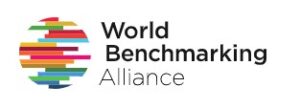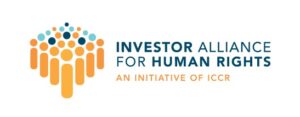On August 31, 2022, Rights CoLab, together with the World Benchmarking Alliance, BSR, and Investor Alliance for Human Rights, co-organized the roundtable “Centering Human Rights and Environmental Due Diligence: The US National Action Plan on Responsible Business Conduct.” Hosted by the Keough School of Global Affairs Washington Office, the roundtable was designed to support the interagency process underway to develop a US National Action Plan on Responsible Business Conduct. The two-hour hybrid event featured speakers who had submitted comments to a Federal Register Notice that called for specific human rights and environmental due diligence (HREDD) measures. Over 150 people, including government representatives from six agencies, participated in person or remotely. During a session on measures the U.S. government can take to promote greater transparency around human rights due diligence (HRDD), as required by the UN Guiding Principles on Business and Human Rights (UNGPs) and the OECD Guidelines on Multinational Enterprises (OECD Guidelines), Rights CoLab CoFounder Joanne Bauer made the following remarks.
*******
As one of the organizers of this roundtable, I’d like to thank everyone for being here and contributing. Thanks also to my co-organizers for allowing me this time to amplify Rights CoLab’s submission to the Federal Register Notice.
For the past three years Rights CoLab has worked as a knowledge partner to the Sustainability Accounting Standards Board (SASB) to help better integrate human rights into the SASB human capital standards as they were undergoing revision. Together with partners and a growing Network of Allies, some of whom are in this room, Rights CoLab is also spearheading the co-creation of a Task Force on Inequality-related Financial Disclosures, a systemic risk management framework for inequality that integrates human rights and planetary thresholds – a framework which we are convinced the market sorely needs at a time when systemic risks – risks to the macro-economy – are becoming increasingly salient. Our hope is that once developed this framework will be adopted by the regulatory authorities around the world, just as we see TCFD as the reference point for climate reporting, including in the proposed climate rule of the US Securities Exchange Commission (SEC).
In the course of this work, like others we have seen a strong shift in investor interest in human rights issues over the past few years. Investors need companies to report on the human rights risks they face, as there is now overwhelming evidence of their materiality. As part of our work with SASB we compiled media reports based simply upon a reading of the news over a 10-month period that clearly demonstrate the operational, reputational, and legal risk and opportunities for companies of human rights risks in their labor supply chains. SASB cited this evidence in its Human Capital Framework as the baiss for including the topic of labor conditions in supply chains in the framework, and as a priority topic for standard setting.
But to prevent and mitigate harms, we need more than just reporting on human rights due diligence and risk – investors need better visibility into the quality of HREDD to be assured that companies even understand what their risks are.
HREDD is fast becoming a regulatory and financial imperative for the U.S. investors and companies. The adoption of mandatory HREDD laws by legislatures across Europe, and the European Commission’s proposed directive on Corporate Sustainability Due Diligence comes out of private sector and government recognition of the importance of HREDD in preventing and mitigating company human rights risks throughout their operations. U.S. companies selling or making goods in the European market that meet a certain threshold will also be subject to this law, which could make them subject to European administrative sanction.
Until now, HREDD for US companies has been voluntary and patchy. Some companies have begun producing HREDD reports, but their quality is variable.
Investors can be spared unwelcome surprises when companies carry out robust HREDD, as required by the UNGPs and the OECD Guidelines, which involves effective stakeholder engagement to accurately identify, assess, integrate, and act on such risks. Effective stakeholder engagement sits at the heart of due diligence and without it, it’s highly likely that the risk will not be avoided, addressed, or mitigated.
At Rights CoLab, we know from our own engagement with SASB leadership, and with major institutional investors that there is a desire for a decision-useful human rights due diligence disclosure standard. As the market moves toward a common global baseline standard for ESG disclosures through the ISSB, HREDD will need to be an explicit part of it.
The SEC can play a leadership role in developing disclosure guidance around HREDD that is decision useful. In fact, this is a needed complement to the developments not only to create the consistency and legal certainty that U.S. companies demand, but because it’s an opportunity to define a decision useful standard to aid companies and to give investors and other stakeholders insight into the quality of an entities’ due diligence to ensure that it is more than “tick box” exercise.
By committing to a decision useful disclosure rule and guidance for human rights and environmental due diligence, the SEC can 1) protect investors; 2) ensure fair, orderly, and efficient markets; 3) facilitate capital formation; and 4) demonstrate US-leadership.
Alongside the SEC, the Department of Labor’s Employee Benefits Security Administration, or EBSA, also has a role to play: EBSA can develop guidance that interprets existing duties of ERISA fiduciaries to communicate asset owner expectations around HREDD in the selection of asset managers – the guidance that provides questions to ask about the asset manager’s own human rights assessment processes is especially needed.
EBSA should also consider creating guidance for plan fiduciaries regarding their duty of care to provide reasonable mitigation of long-term systemic risks through investment, engagement, and voting. Accounting for living wages, freedom of association and collective bargaining, and many other fundamental rights is essential since their infringement creates systemic risks for the macro economy. These systemic risks affect large pension funds’ total portfolio and cannot be diversified away. As universal owners, pension funds and other large asset owners would strongly benefit from a decision-useful human rights due diligence standard and guidance on how to integrate such a standard into their investment decisions.
Photo by Tim Mossholder on Unsplash



